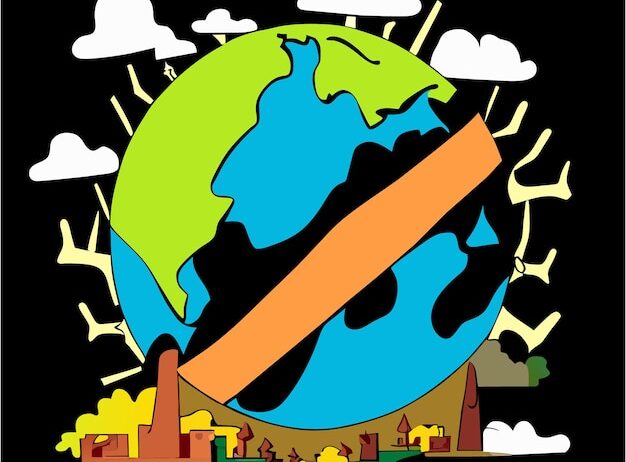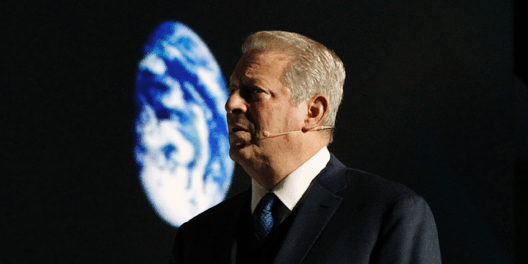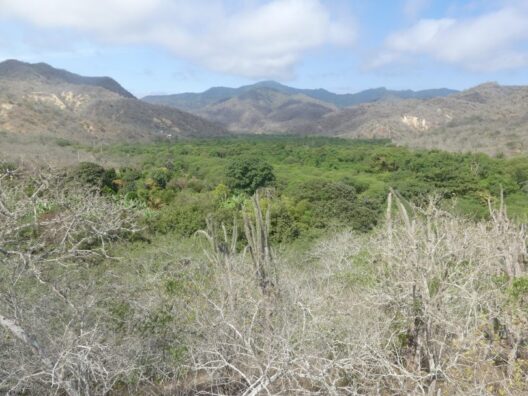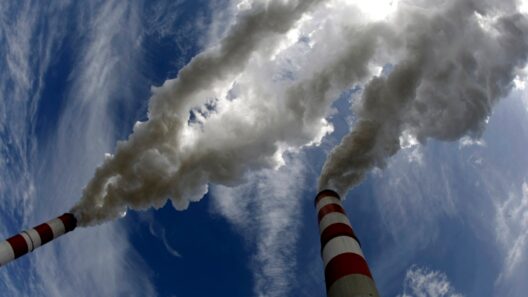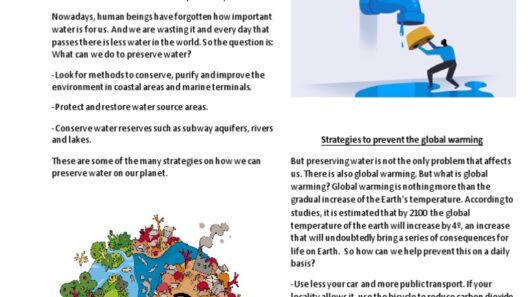As the delicate balance of Earth’s ecosystems hangs precariously in the balance, the ominous specter of global warming looms larger than ever. The ramifications of climate change are not merely future concerns; they are reshaping our planet’s environment in real-time, affecting weather patterns, biodiversity, and human livelihoods. The urgency of the matter compels us to look beyond statistics and delve into the profound implications of our changing climate.
Deforestation, one of the most devastating drivers of climate change, is transforming vast swathes of the earth’s surface. Trees play an indispensable role in sequestering carbon dioxide, a primary greenhouse gas. The eradication of forests not only releases stored carbon but also diminishes nature’s capacity to absorb future emissions. Every year, millions of hectares are stripped bare under the relentless pressure of industrial advancement and agricultural expansion. The resultant loss of biodiversity threatens countless species, some of which may vanish before we even have a chance to comprehend their ecological roles.
Moreover, the temperature elevation corresponds to a myriad of unsettling phenomena. Glaciers, those ancient sentinels of our planet’s climate history, are rapidly receding. Regions once blanketed in ice are experiencing unprecedented warming, leading to rising sea levels that threaten coastal communities globally. Flood inundations and storm surges are now regular occurrences, fueled by warmer oceans that generate more ferocious weather systems. Ironically, these transforming climates often generate deeper social inequities, as marginalized communities bear the brunt of climate-induced disasters, and an alarming cycle of poverty ensues.
Weather anomalies illustrate another facet of our perilous predicament. Beyond rising temperatures, we are witnessing an increase in the frequency and intensity of extreme weather events, including hurricanes, droughts, and heatwaves. These manifestations disrupt agricultural patterns, leading to food insecurity and exacerbating conflicts over resources. The implications stretch far and wide, from diminished crop yields in arid regions to rampant wildfires engulfing vast tracts of vegetation, further marginalizing vulnerable ecosystems and human populations alike.
Yet, beneath this harrowing narrative exists a transformative potential for innovation and resilience. The global discourse on renewable energy has burgeoned, reflecting a palpable shift in perspective. Solar, wind, and other sustainable energy sources are forging paths to cleaner futures, advocating for a transitioning away from fossil fuels and towards a more harmonious cohabitation with the planet. The rise of electric vehicles, energy-efficient technologies, and sustainable agricultural practices signifies a burgeoning movement aimed at counteracting climate inertia.
Moreover, reforestation and afforestation initiatives have gathered momentum. By restoring deforested landscapes and planting new trees, communities can contribute significantly to carbon sequestration efforts. These initiatives not only facilitate ecosystem rehabilitation, but also empower local populations by fostering employment opportunities and enhancing food security. Such projects ignite a sense of agency in combating climate change, proving that grassroots movements can culminate in substantive environmental stewardship.
Education emerges as an indispensable ally in addressing the climate crisis. Instilling awareness and fostering responsible behavior among younger generations can catalyze a paradigm shift. Schools and communities are increasingly incorporating sustainability into their curricula, pushing individuals to appreciate the interdependence of human existence and natural systems. This newfound understanding shapes consumers’ choices and energizes civic engagement, compelling citizens to advocate for smarter policies and sustainable practices.
Nevertheless, the transition towards sustainability is fraught with complexities. Political inertia and economic interests frequently obstruct meaningful progress. Lobbying from fossil fuel industries can suppress policy initiatives aimed at climate action, stifling potential innovation in favor of short-term profits. This underscores the necessity for robust governance frameworks and international cooperation to dismantle barriers that hinder substantive climate action. The implementation of binding agreements to limit greenhouse gas emissions is essential; such measures are not merely aspirational but crucial for steering our planet towards a viable future.
When contemplating the anthropogenic drivers of climate change, it is imperative to acknowledge the ethical dimensions of our actions. Environmental justice advocates highlight the moral obligation to protect disenfranchised communities disproportionately affected by environmental degradation. As the repercussions of climate change are felt unequally across the globe, solidarity movements are increasingly vital. By standing united, societies can wield their collective strength, demanding equitable solutions that prioritize both ecological health and human welfare.
As we navigate this labyrinthine landscape of climate action, hope perseveres amid despair. The intrinsic resilience of nature and human ingenuity drives forward the possibility of rejuvenation. Innovations in carbon capture technology and sustainable practices manifest a future devoid of fossil fuel dependency. The transitional journey, albeit arduous, holds the potential for awe-inspiring breakthroughs. Each collective effort, whether small-scale local initiatives or large-scale international agreements, contributes to the broader tapestry of climate action.
Ultimately, embracing a paradigm shift in our approach to the climate crisis is paramount. A contemplative understanding of the planet’s fragility evokes curiosity about the intricate networks of life and the unresolved questions they pose. Awareness can trigger action, breathing life into a global movement that emboldens individuals and communities alike. Now, more than ever, it is crucial to acknowledge that the fate of our planet lies in our hands—a stark reminder that every decision we make today shapes the world that future generations will inherit. Together, we can forge a resilient paradigm that champions sustainability, environmental stewardship, and harmony with nature.



